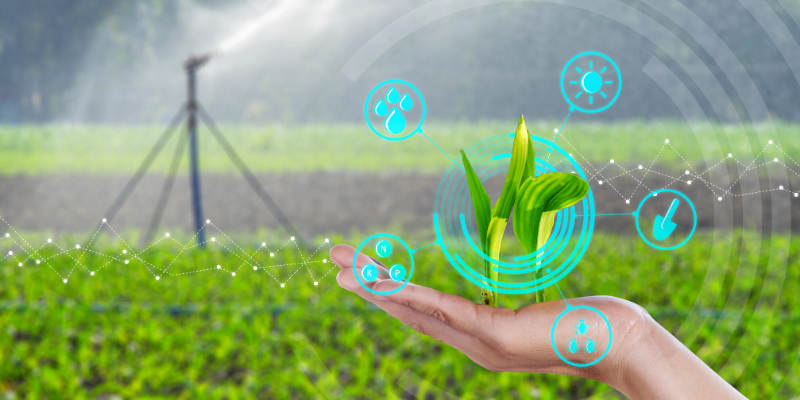There has been an overwhelming amount of activity in the agritech sector in India. According to an Ernst & Young 2020 study, the potential of the Indian agritech market is $24 billion by 2025 while according to another study by Bain & Company, the potential is at $35 billion by 2025.
To discuss the massive growth and increasing demand in the sector, Bala Reddy, CEO, Our Food and Medha Meenal, Head Strategy, Aqgromalin come together for an interesting panel discussion and talk about the scope of the sector.
Speaking about the recent growth in the sector, Bala says that post pandemic, a number of young people from the rural areas who lost their jobs in the metro cities came back and started working on cultivation. But they realised the importance of doing something industrial and hence took up food processing and other agriculture related jobs which contributed to the growth of the sector as a whole.

Image Source: ShutterStock
He adds that Hyderabad-based Our Food provides an end-to-end solution by offering low-cost food processing units and facilitating loans. The company then sells the end products.
“We were hardly present in 100 different locations before the pandemic and today we are present in 2,000 locations across 12 states,” he says.
Medha shares that the agricultural sector has been the most robust sector during the pandemic with startups facing increased demand. Chennai-based Aqgromalin delivers inputs to farmers who want to diversify into animal husbandry, aquaculture, etc and it has seen good growth during the lockdown, she shares.
Commenting on the future of agritech, Bala mentions that 2022 is going to be the year of agritech startups. “Everyone realised the potential of the agri-sector and the innovative solutions offered by the startups,” he says.
He adds that to date Our Food has been providing solutions in Andhra Pradesh, Telangana, Karnataka, Madhya Pradesh, and Maharashtra, and expects to further increase its footprint this year. The company also aims to improve the efficiency in logistics as well by leveraging AI-ML technology.
Medha explains that there are two major trends in the sector — platform solutions for particular value chains and decentralisation. Aqgromalin’s focus this year would be on geographic expansion and product diversification. They also plan to experiment a little bit with platform services as well.
In terms of investment, she shares that the company has recently closed its pre-series A round. “Across the entire startup ecosystem, it’s an operator’s market now,” she says.
Our Food has recently closed a $6 million funding round and this will be used in the next year, Bala says. However, the company has intentions of closing a Series B round of funding in the range of $25-30 million and that will be used for bringing efficiency to their distribution network.
Lastly, speaking about the expectations from the government, Medha shares that the help that is required currently is in building basic infrastructure. Bala adds to that by saying that easy access to credit is the support that the government can provide for the sector.
Edited by Affirunisa Kankudti

